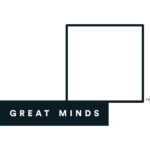Digital Learning
Fun, informative and captivating talks to inspire young minds.
Whether you’re in New York City or across the globe, you’ll get to: (1) Explore The Met using an interactive map (2) Watch behind-the-scenes videos that feature kids just like you (3) Travel through more than 5,000 years of art in their time machine (4) Discover fun facts about works of art—from dragons to dancers, and from mummies to masks and more! (5) Try out creative projects for at home or in the galleries (6) Stay up-to-date with the #MetKids blog.
Teachers and teacher–writers know it’s important for students to build knowledge every day, even when schools are closed. That’s Great Minds is providing knowledge-building resources —written materials for math (Grades K–12) and daily instructional videos for English language arts (Grades K–8), math (Grades K-12), and science (Grades 3–5). They will post new video lessons and update our content daily.
Kids, this comic is for you. It’s based on a radio story that NPR education reporter Cory Turner did. He asked some experts what kids might want to know about the new coronavirus discovered in China.
Mindheart has created this short book to support and reassure children, under the age of 7, regarding the COVID-19. This book is an invitation for families to discuss the full range of emotions arising from the current situation.
Explore popular Arts and Humanities study sets on Quizlet. Study Arts and Humanities topics like History, English and Philosophy. Learn what you need to get good grades in Arts and Humanities classes. Memorize important Arts and Humanities terms, definitions and concepts. Prepare for Arts and Humanities homework and exams with free online flashcards, diagrams, study guides and practice tests.
Math Game Time is your destination for the best math games and homework help online. Their games are fun, educational and trustworthy. Math Game Time was created by educators to help kids succeed. Their goal is to provide a fun, educational playground for students in Pre-K through 7th grade to excel in math.
Being part of the education community, it’s important to Mangahigh that they support all schools and students in any way they can. They are therefore offering full access to Mangahigh during school closures for any schools who are impacted by COVID-19 so learning doesn’t have to stop. This includes 100% of our mathematics content and full reporting dashboard for the teachers and a full account for each student so they can continue their learning from home on any device they have access to. With Mangahigh, teachers can assign and assess students’ performance online and exchange messages with their students in a virtual environment.
Google Earth’s Voyager is a showcase of interactive guided tours, quizzes, and layers that aim to help educate everyone about the world, locations near and far.
Understanding basic science concepts is key to enjoying STEM and the world around you. Astronauts on board the International Space Station have conducted experiments to explore some basic science concepts. Come explore with the astronauts!
These are some free resources available on the internet to help children learn to code either in your classroom or in your own family. If your school participates in Hour of Code, these are some awesome sites to use with your students. The younger groups may need a little more assistance understanding directions as sometime things can be written at a higher reading level that they may be. This site has broken the list out by K-8 resources and 9-12 resources. They highly suggest anyone starting out to start with some block programming or drag and drop websites as this can help ease frustration with spelling errors or mis-typed characters. So, even if you’re an adult some of the younger kids resources might help you a bit!
Code with Google helps educators give their students confidence in computer science, advance their skills, and prepare them for the future. CS First is a free computer science curriculum that anyone can teach. Designed for students ages 9-14 of all interests and experience levels, students learn collaboration and core computer science concepts as they create their own projects. Educators lead the way with easy-to-use lesson plans, tutorials, activities, and resources.










